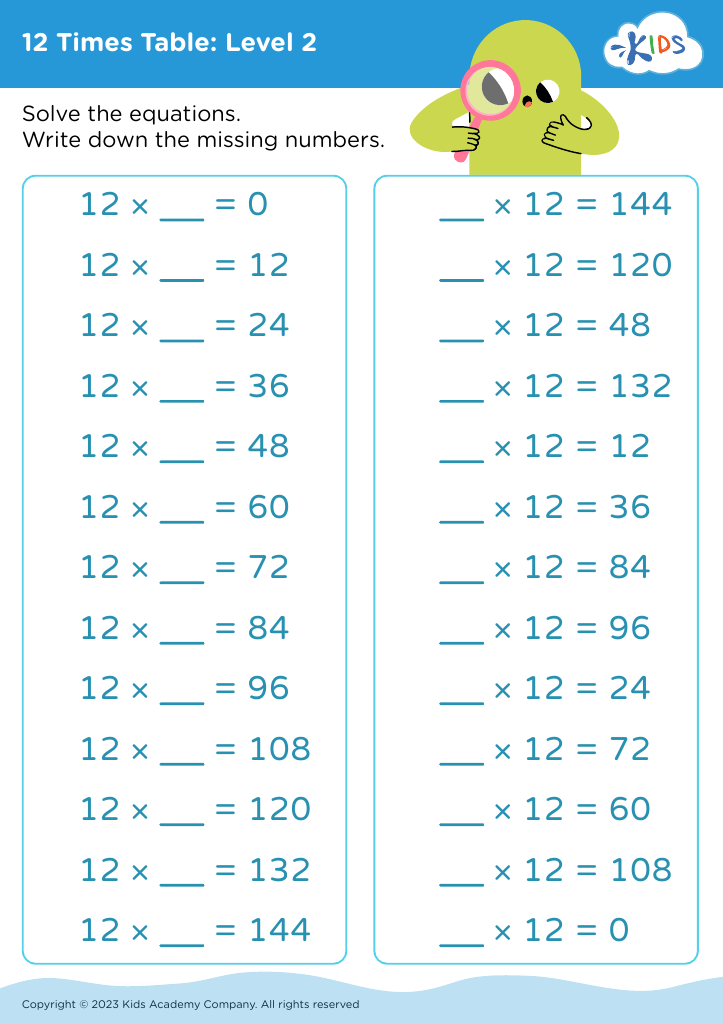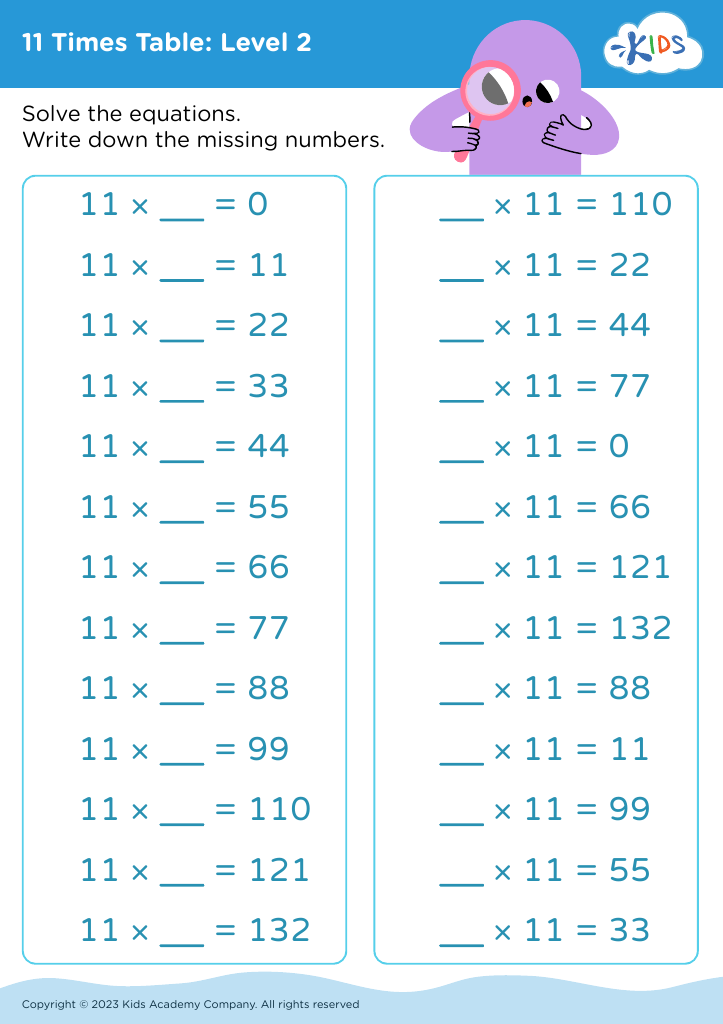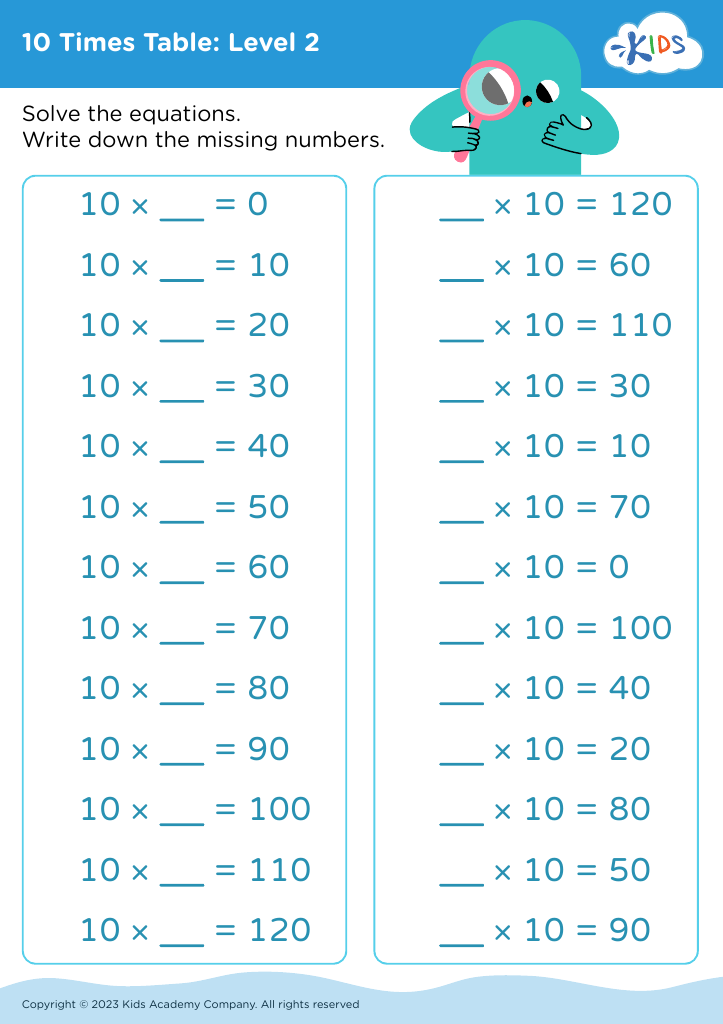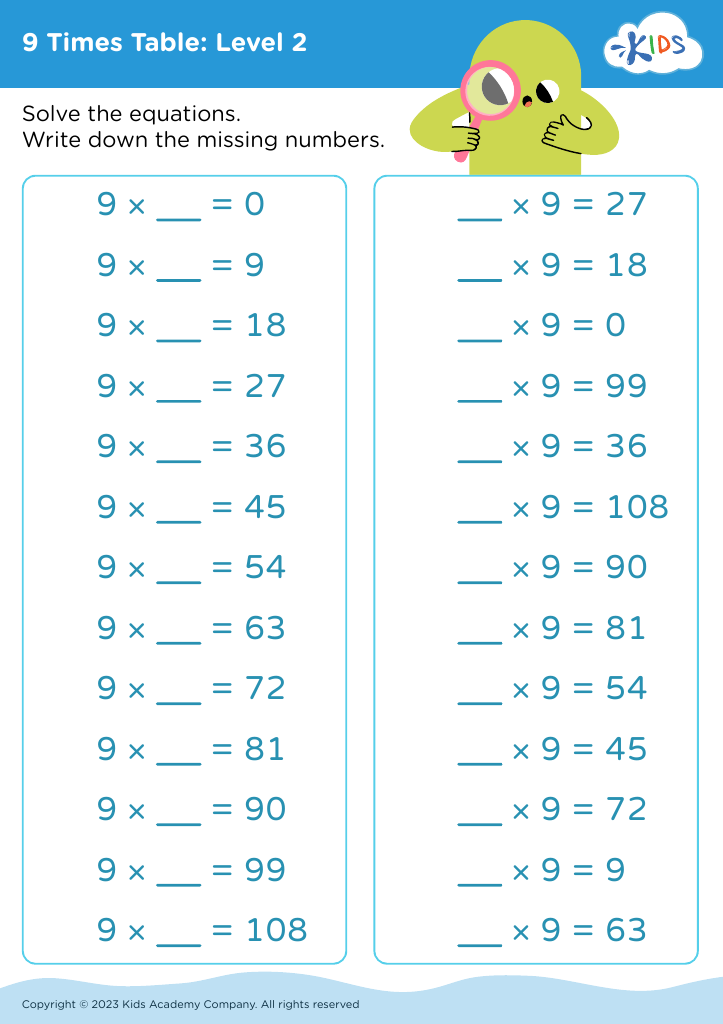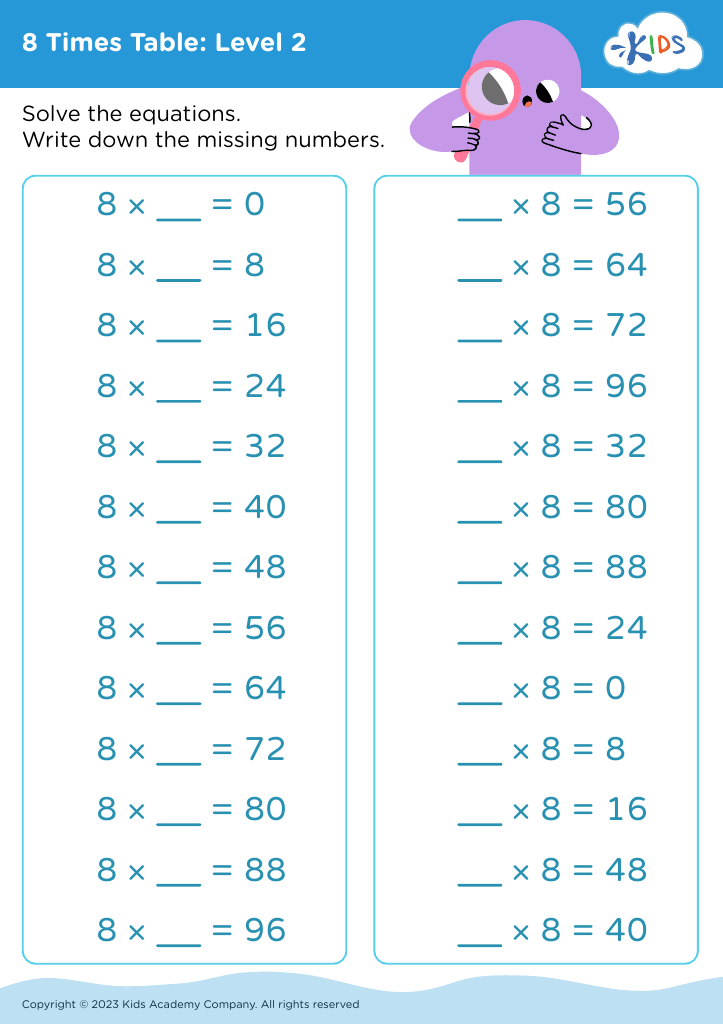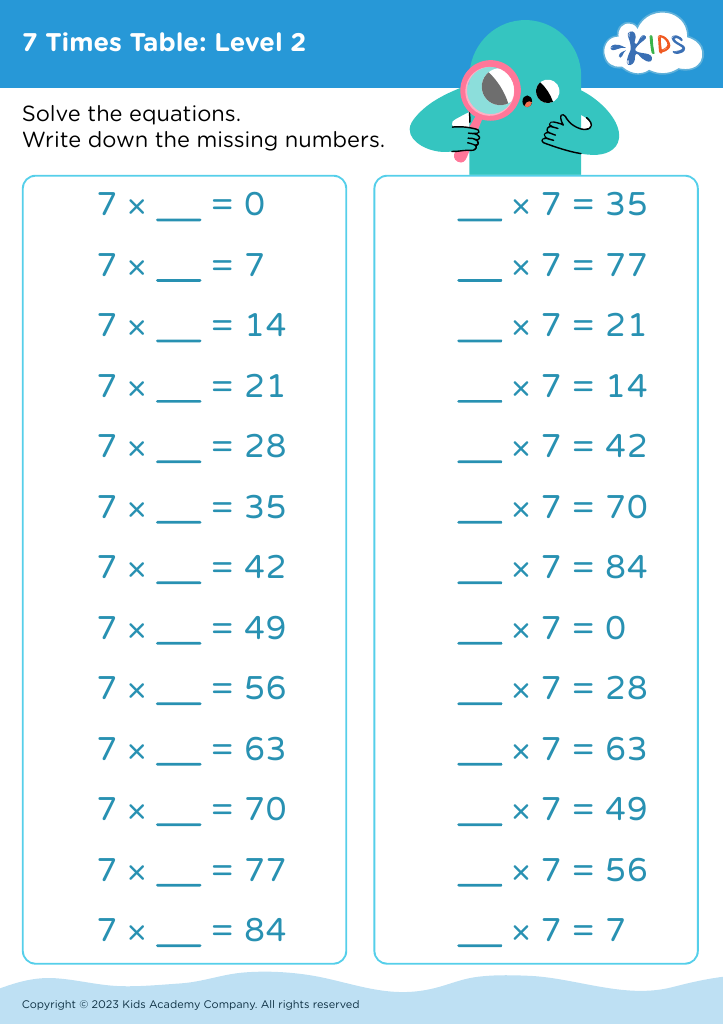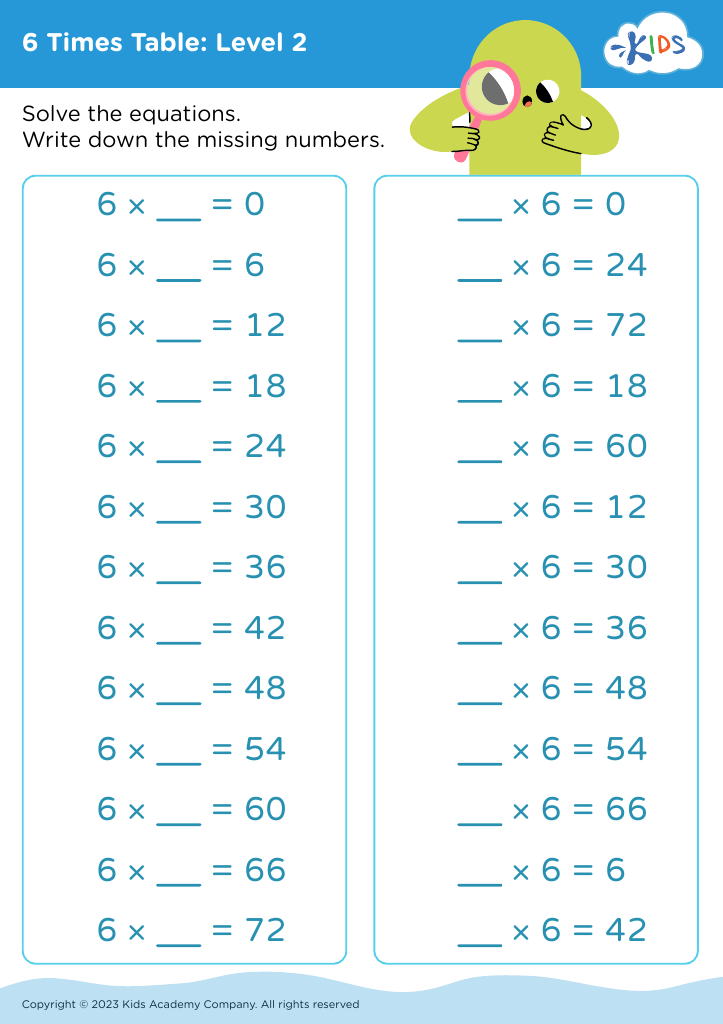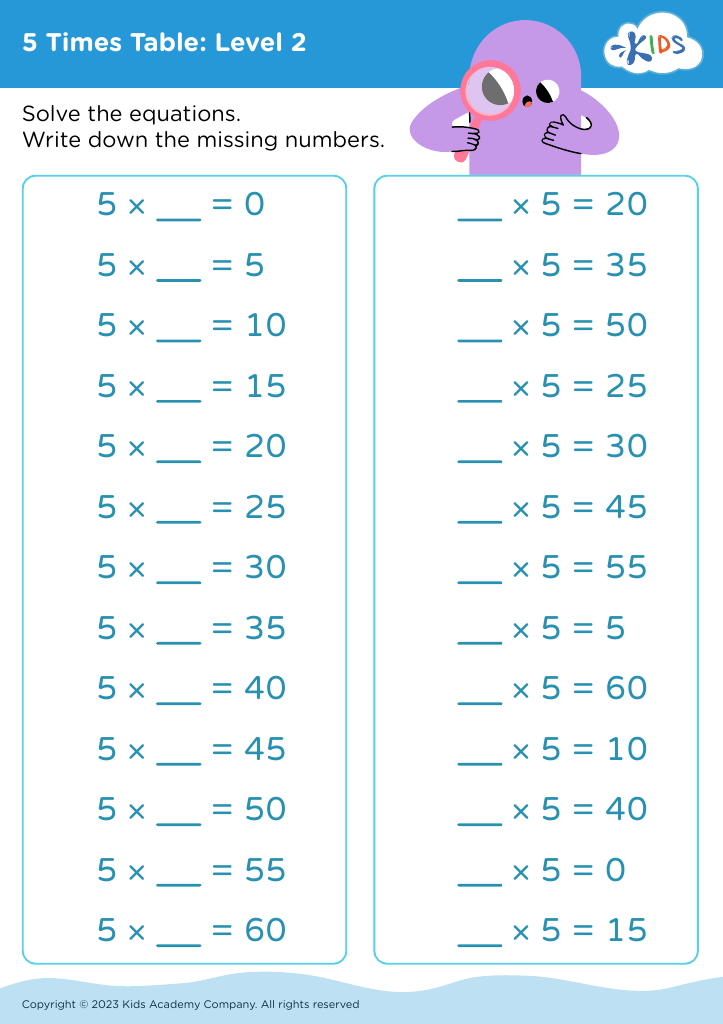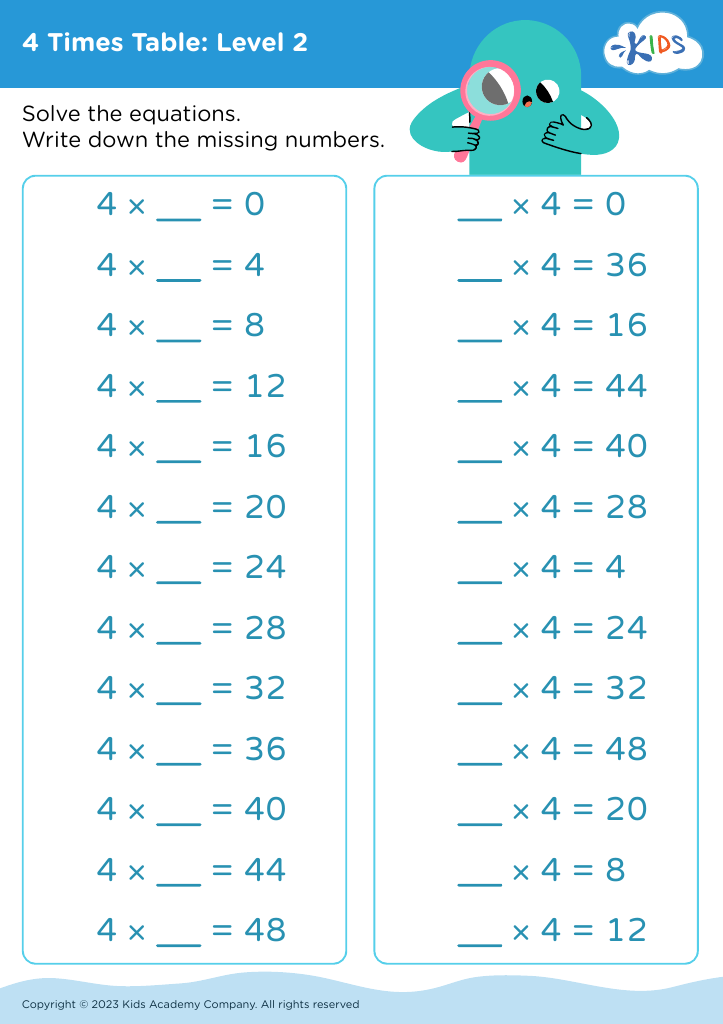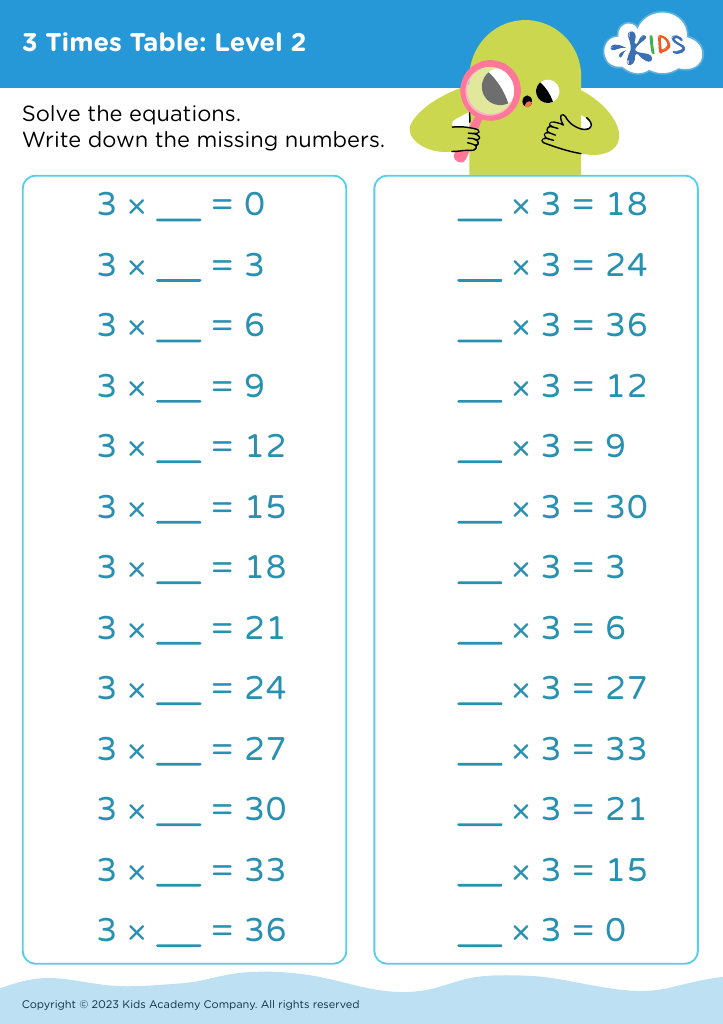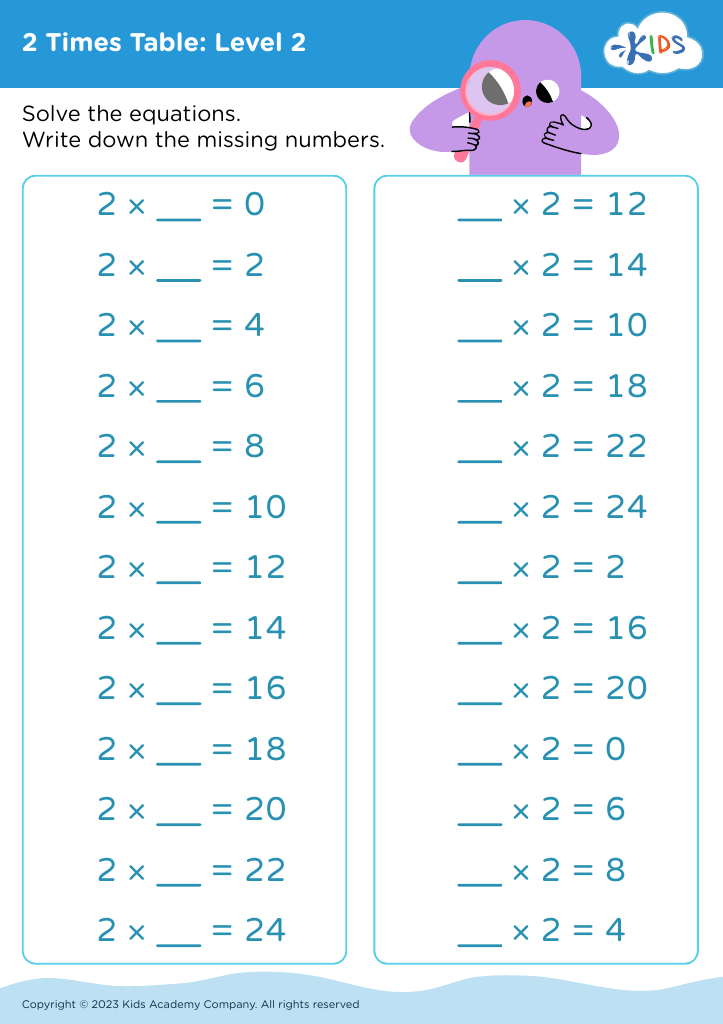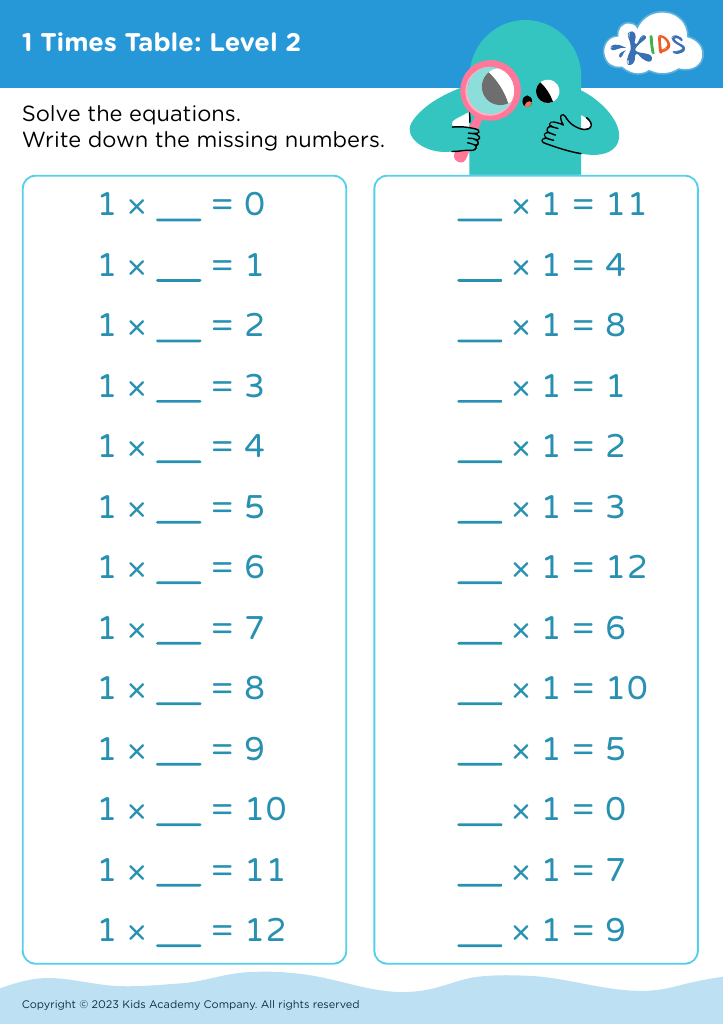Multiplication practice Normal Times Tables Worksheets for Ages 5-9
12 filtered results
-
From - To
Our Multiplication Practice worksheets for ages 5-9 are meticulously crafted to help young learners master the basics of times tables in a fun and engaging way. These printable worksheets are perfect for daily practice and reinforce key concepts with progressively challenging exercises. Designed to support early math skills, our Normal Times Tables worksheets enhance accuracy and fluency, providing a solid foundation for more advanced mathematical learning. Featuring vibrant visuals and interactive problems, these activities are ideal for classroom use or home practice, ensuring children build confidence and proficiency in multiplication through consistent practice and positive reinforcement.
Multiplication practice through normal times tables for children aged 5-9 is essential for several reasons, making it something that both parents and teachers should prioritize. Firstly, mastering multiplication lays a strong foundation for more advanced math skills. Early familiarity with multiplication concepts helps kids understand division, fractions, and geometry more easily in later grades.
Secondly, learning times tables improves number sense and mental math abilities. Children become quicker and more confident in making calculations, which is crucial for everyday problem-solving. This boost in confidence encourages a positive attitude towards learning and academic challenges in general.
Moreover, the age range of 5-9 is a crucial period for cognitive development. Repeated practice and memorization of times tables enhance memory and concentration. A solid grasp of multiplication fosters logical thinking and pattern recognition, both of which extend beyond math to other subjects and real-world scenarios.
Lastly, proficiency in basic math skills is often linked to better performance in standardized tests and overall academic success. Parents and teachers can work together to create a supportive learning environment, using fun and engaging methods to practice times tables. This collaborative effort not only improves mathematical abilities but also strengthens the child's relationship with their educators and caregivers.
